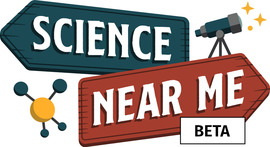Other Astronomy Imagery, Lesson Plans, and Resources
AstroPix
Welcome to a new way to explore and share the Universe! AstroPix is your fully-searchable one-stop-shop for images from many of the leading astronomical observatories, including Spitzer, Hubble, Chandra, WISE, ESO, and GALEX, with more coming soon. AstroPix includes astronomical observations, illustrations, charts, and photographs spanning the field of Astronomy. All of the AstroPix imagery is tagged with supporting information describing the content, from titles and captions to wavelengths and distances.
NASA Wavelength
NASA Wavelength is your pathway into a digital collection of Earth and space science resources for educators of all levels – from elementary to college, to out-of-school programs. These resources, developed through funding of the NASA Science Mission Directorate (SMD), have undergone a peer-review process through which educators and scientists ensure the content is accurate and useful in an educational setting. Use NASA Wavelength to quickly and easily locate resources, connect them to other websites using atom feeds, and even share the resources you discover with others through social media and email. Check back often for updates.
Teach Astronomy
Teach Astronomy is an astronomy learning tool, intended either as a supplement for classroom instruction or for informal learners wanting to know more about the subject. The included free textbook is intended for all audiences, and is an introduction to the nature of the universe. Use it to research or review our Solar System, stars, galaxies, and the history of the Universe. Each chapter has a set of corresponding homework questions.
NASA's Universe of Learning
NASA’s Universe of Learning provides resources and experiences that enable youth, families, and lifelong learners to explore fundamental questions in science, experience how science is done, and discover the universe for themselves.
Science Near Me
Science Near Me is a free resource to help you quickly find opportunities to engage in all types of science, technology, engineering, math, (STEM) events, projects, and programs near you, in person and online.
Published: 21 October, 2022






